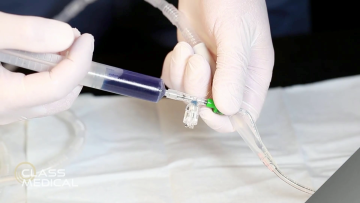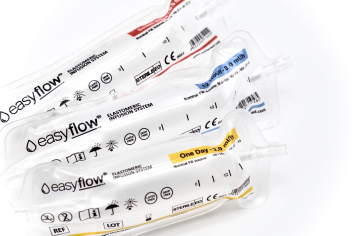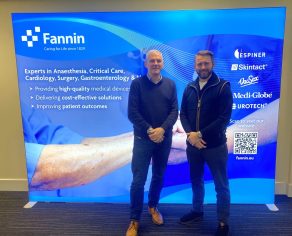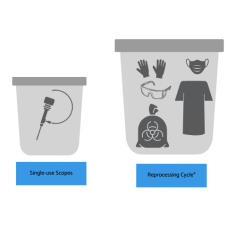Modern Slavery Act 2015
Slavery and Human Trafficking Statement for Year Ended 31 March 2022
- Our Policy
DCC Vital is opposed to slavery and human trafficking in any part of our activities or our supply chains. We are therefore committed to ensuring that we have adequate policies and procedures in place to identify and prevent these practices.
We met the turnover threshold applicable under section 54 of the Modern Slavery Act 2015 in the period covered by this statement.. - Our Business
We distribute a broad range of own- and third party-branded medical devices, pharmaceuticals and medical supplies to hospitals, pharmacies, GPs, laboratories, other healthcare providers and related industries in the UK, Ireland and internationally. Seasonal work is not a feature of the industry in which we operate. More information on our business is available at www.dccvital.com.
We are part of the DCC Group. DCC is a leading international sales, marketing and support services group with a clear focus on performance and growth. Its headquarters are in Dublin, Ireland. It is listed on the London Stock Exchange and is a constituent of the FTSE 100 Index.
DCC currently has operations in 21 countries and employs over 15,000 people. Additional information on the Group is available at www.dcc.ie. - Organisational Structure & Supply Chains
In the period, our business was organised into the following trading companies:
– Fannin Limited
– Fannin (UK) Limited
– Fannin (NI) Limited
– Medisource Ireland Limited
– SP Services Limited
– The TPS Healthcare Group Limited
– Williams Medical Limited
– Vacsax Limited
– Wörner Medizinprodukte Holding GmbH
Our primary supply chain partners are authorised medical device and pharmaceutical manufacturers and distributors. The large majority of these are located in countries where the risk of modern slavery and human trafficking is low. Where we deal with suppliers in countries where this risk is higher, we have put more robust controls and due diligence in place.
The following table contains a summary of the activities that we consider present the highest risk of slavery and human trafficking in the industries in which we operate, with, in each case, a summary of the steps we have in place to avoid these affecting our activities or our supply chains. - Industry Risk Steps Taken include
- Representing manufacturers or engaging contract manufacturing based in high risk countries
- − Quality and ethical due diligence checks/reports
- − Risk based approach to desktop and site auditing including third party auditors or compliance schemes
- − Robust agreements including quality and supply chain integrity clauses where applicable
- − Signed statements of compliance and/or acceptance to our Code of Practice
- − Open regular two-way communications on compliance expectations and performance
- − Provision of training to our partners where required
- − Agreeing mitigating controls and corrective actions where require
- − Terminating the relationship if mitigation not possible
- Appointing distributors outside the EU
- Appointing shipping third parties that assist in cross border processes including customs brokers, freight forwarders and transport companies involved in clearing customs
- Our Policies on Slavery and Human Trafficking
The DCC Code of Conduct sets out our Group’s commitment to acting ethically and with integrity towards our employees and in all our business relationships. Specifically, section 2 of the Code sets out our commitment to fair employment practices and section 14 of the Code sets out our commitment to preventing, as far as practicable, slavery and human trafficking in our supply chains.
In addition, the DCC Group Supply Chain Integrity Policy sets out the approach taken by every business in the DCC Group to ensuring that all the products we sell meet applicable legal and ethical standards, including human rights and minimum labour standards.
In addition, the DCC Human Rights Policy sets out DCC’s specific commitment to operate to internationally recognised standards of human rights, including in relation to forced labour, child labour and unsafe working conditions.
These documents are available here.
Our policy on slavery and human trafficking is set out in section 1 of this statement.
At DCC Vital, we have established our Supply Chain Integrity and Anti-Bribery and Corruption Risk Assessment Procedure and Code of Practice to reflect the requirements of these Group
policies. These documents outline the detailed requirements we follow at DCC Vital and which have been integrated into local company procedures. With the support of a third party audit our procedures have been updated and significantly improved. In addition, relevant DCC Vital companies participate in the NHS Labour Standards Assurance System including third party audit of our Supply Chain Integrity Procedures.
- Due Diligence and Assessing and Managing Risk
As part of our compliance with the policies and procedures referred to above, we take the following steps:
• Assess potential risk areas in our supply chains, including where partners or potential partners are located in countries where slavery or human trafficking are a particular risk. The risk assessment considers the industry or geographies in which they operate. Geographic risk, for this purpose, is informed by relevant independent indices such as the Corruption Perceptions Index or Global Slavery Index;
• Carry out enhanced due diligence on certain partners following this risk assessment. As a DCC Group business, we work mainly with Kroll, a leading supplier of integrity due diligence services, in this area. Where red flags are identified in this due diligence, senior management are involved;
• Mitigate the risk of slavery and human trafficking occurring in our supply chains, including by reviewing, where necessary, the controls that our partners have in place, asking partners to confirm that they meet certain standards and carrying out other suitable checks including audits.;
• Monitor potential risk areas in our supply chains on a periodic basis.
Steps we have taken to enhance our process for identification of slavery and human trafficking risks in our supply chain are set out below:
• In the period, DCC Vital extended the scope of our Supply Chain Integrity and Anti-Bribery and Corruption Risk Assessment Procedure to include additional at risk partners. A gap analysis has been conducted to identify any third parties in the extended scope that were not previously subject to due diligence. The due diligence in respect of these third parties has now been completed. - Assurance and Key Performance Indicators
Responsibility for ensuring that our policies and procedures are adequate and are adhered to in all areas of our activities rests with the senior management team of DCC Vital. Regular updates are provided to the DCC Vital Compliance Committee and DCC Vital Leadership Team for review and feedback. Our policies and procedures are audited periodically by internal auditors and by third parties to assure compliance and to identify areas for improvement. These audits address supply chain integrity risks including the abuse of human rights and employment rights. Further to a third party audit, significant updates to our policies and procedures have been adopted which includes extending the scope to include additional third parties e.g. shipping third parties.
We report on compliance with the DCC Group Code of Conduct and Supply Chain Integrity Policy every six months.
- Training & Awareness
In the period covered by this statement over 125 employees in our business completed training on our Code of Conduct which covered the protection of human rights, including the prevention of slavery. This training is rolled out regularly to all employees.
We also provide training to relevant employees on supply chain risks, including the risk of slavery and human trafficking in accordance with our procedure requirements. A comprehensive bespoke training programme is in place and is carried out periodically across the business including employees from Commercial. Finance, Procurement, Quality Departments plus Senior Management and Compliance Committee members.
Our participation in industry associations and our dealings with third party partners also provides DCC Vital with information regarding slavery and human trafficking risks in the industries where DCC Vital is active, and best practice in avoiding them. - Nature of this Statement
This statement is made pursuant to section 54(1) of the Modern Slavery Act 2015 and constitutes our slavery and human trafficking statement for the financial year ending 31 March 202.
This statement has been approved by the DCC Vital Leadership Team.
Harry Keenan
Group Managing Director
DCC Vital
June 2022



